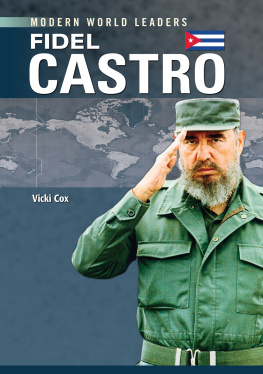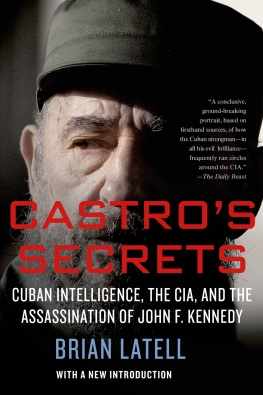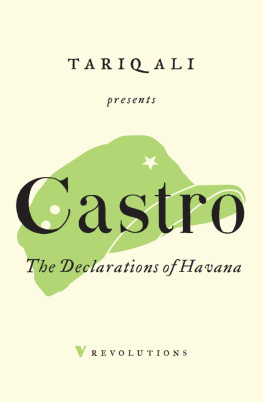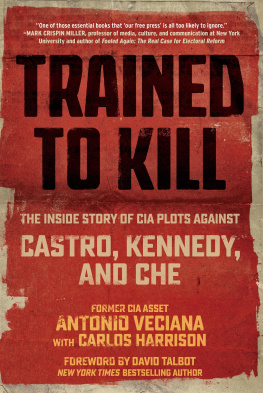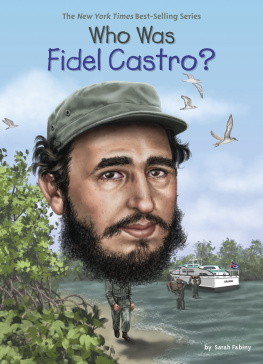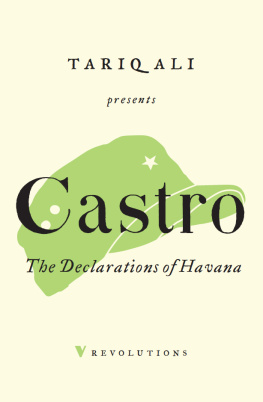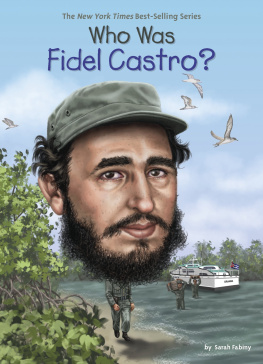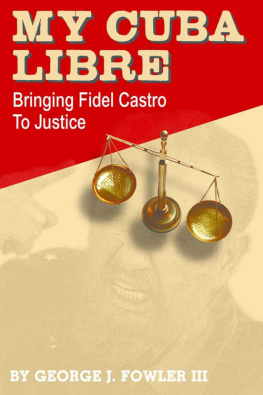Maxine Kenneth - Spy in a little black dress
Here you can read online Maxine Kenneth - Spy in a little black dress full text of the book (entire story) in english for free. Download pdf and epub, get meaning, cover and reviews about this ebook. City: New York, year: 2012, publisher: Grand Central Pub, genre: Art. Description of the work, (preface) as well as reviews are available. Best literature library LitArk.com created for fans of good reading and offers a wide selection of genres:
Romance novel
Science fiction
Adventure
Detective
Science
History
Home and family
Prose
Art
Politics
Computer
Non-fiction
Religion
Business
Children
Humor
Choose a favorite category and find really read worthwhile books. Enjoy immersion in the world of imagination, feel the emotions of the characters or learn something new for yourself, make an fascinating discovery.

- Book:Spy in a little black dress
- Author:
- Publisher:Grand Central Pub
- Genre:
- Year:2012
- City:New York
- Rating:4 / 5
- Favourites:Add to favourites
- Your mark:
- 80
- 1
- 2
- 3
- 4
- 5
Spy in a little black dress: summary, description and annotation
We offer to read an annotation, description, summary or preface (depends on what the author of the book "Spy in a little black dress" wrote himself). If you haven't found the necessary information about the book — write in the comments, we will try to find it.
Spy in a little black dress — read online for free the complete book (whole text) full work
Below is the text of the book, divided by pages. System saving the place of the last page read, allows you to conveniently read the book "Spy in a little black dress" online for free, without having to search again every time where you left off. Put a bookmark, and you can go to the page where you finished reading at any time.
Font size:
Interval:
Bookmark:
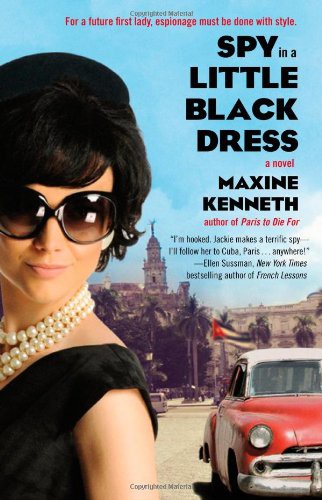
In accordance with the U.S. Copyright Act of 1976, the scanning, uploading, and electronic sharing of any part of this book without the permission of the publisher constitute unlawful piracy and theft of the authors intellectual property. If you would like to use material from the book (other than for review purposes), prior written permission must be obtained by contacting the publisher at permissions@hbgusa.com. Thank you for your support of the authors rights.
This book is a work of historical fiction. In order to give a sense of the times, some names of real people or places have been included in the book. However, the events depicted in this book are imaginary, and the names of nonhistorical persons or events are the product of the authors imagination or are used fictitiously. Any resemblance of such nonhistorical persons or events to actual ones is purely coincidental.
Copyright 2012 by Ken Salikof and Maxine Schnall
All rights reserved. In accordance with the U.S. Copyright Act of 1976, the scanning, uploading, and electronic sharing of any part of this book without the permission of the publisher constitute unlawful piracy and theft of the authors intellectual property. If you would like to use material from the book (other than for review purposes), prior written permission must be obtained by contacting the publisher at permissions@hbgusa.com. Thank you for your support of the authors rights.
Grand Central Publishing
Hachette Book Group
237 Park Avenue, New York, NY 10017
www.hachettebookgroup.com
www.twitter.com/grandcentralpub
First e-book edition: October 2012
Grand Central Publishing is a division of Hachette Book Group, Inc.
The Grand Central Publishing name and logo is a trademark of Hachette Book Group, Inc.
The publisher is not responsible for websites (or their content) that are not owned by the publisher.
The Hachette Speakers Bureau provides a wide range of authors for speaking events. To find out more, go to www.hachettespeakersbureau.com or call (866) 376-6591.
ISBN 978-0-446-56742-8
Paris to Die For
Dedicated to the man, who, fifty years ago, displayed his own profile in courage as he steered the world away from the path of nuclear annihilation.
May 7, 1951. Jacqueline Lee Bouvier, twenty-one years old and about to graduate from college, wrote a letter to Mary Campbell, personnel director of Cond Nast, sadly declining first prize in Vogue magazines prestigious Prix de Paris competition. In the letter, on file in the John F. Kennedy Library, Jacqueline states that she cannot accept a position at Vogue because she has been offered a special job on a certain project with the newly formed Central Intelligence Agency. What happened next has never been revealed until now.
Everythings legal in Havana.
Graham Greene, Our Man in Havana
Granada, Nicaragua, October 13, 1856
M aria Consuela heard the pop-pop-pop of musket fire coming from beyond the convent walls and knew that the day of liberation had arrived.
Today the convent gates were thrown wide open, and she and her sister novices ran out into the street, as uncharacteristically giddy as young schoolgirls on holiday, to greet the conquering heroes. There they were, the norteamericanos, or the filibusters, as they were known back home in America, supporters of her countrys Democratic faction. They wore no uniforms, but instead a rough collection of motley outfits: swallowtail coats and middy jackets, stovepipe hats and cloth caps. Some had bandoliers strapped across their chests; others had leather or burlap ammunition pouches slung over one shoulder. All of them carried their rifles and pistols casually at their sides, raising them occasionally to shoot at the odd Legitimist sniper popping up here and there.
Joining the crowd in support of the liberators was just the excuse Maria Consuela needed to say good-bye to the convent behind whose walls she had lived for so many years, like a prisoner resigned to her fate. She had been forced by circumstance to trade one stifling existence as the dutiful daughter of middle-class parents for another as the young novitiate dedicated to Christ. And now, this liberation of her country was her chance to leave both lives behind and make a fresh start. She would never return to the convent, she promised, even if it meant becoming a campesinos wife and working in the fields from dawn till dusk.
Maria Consuela and the other novices joined the joyous crowd and skipped alongside the filibusters as they marchedstrolled, reallythrough the narrow and twisty streets of Granada, the former Legitimist stronghold. The young women pecked the soldiers daringly on the cheek as a show of thanks for freeing them from the oppressive Legitimist regime and showered them with flowers as a kind of benediction.
One very young soldier caught the flower Maria Consuela boldly threw his way, removed his cap, and put the flower in his hair. His fellow filibusters laughed at him, but he looked at Maria Consuela and winked at her, as though they were sharing a private joke. To Maria Consuela, this soldier, with his thick rimless glasses, looked more like a librarian than a member of a conquering army.
Suddenly, Maria Consuela heard the sound of a single rifle shot coming from above the street and watched as one of the soldiers fell to the ground, his chest exploding in a bright red spray of blood. She had never seen anyone killed before, and it horrified her.
A second rifle shot immediately ensued, and Maria Consuela mistook it for an echo of the first. But when a second soldier collapsed in a shattered heap, she realized just how much danger the crowd was in.
Sniper, someone called out. And all the soldiers and their well-wishers melted away into the nearest doorways or alleyways, seeking protection from the shooter lying in wait in his vantage point on a rooftop overlooking the street.
Maria Consuela wanted to move to safety too, but found that her legs wouldnt let her. She was frozen in place, paralyzed by fear.
Then a third rifle shot sounded in the street, and a little spray of earth erupted right in front of her. Something must be wrong, Maria Consuela thought. The sniper couldnt be such a bad shot that he missed her so completely.
Before she could react, a fourth rifle shot cracked the air, and dirt from the ground spat up to her right.
A fifth, and a clod of dirt sprang up to her left.
Then, with a chill, Maria Consuela realized that the sniper wasnt a bad marksman. He was merely toying with her, using her as a staked goat in order to lure some of the soldiers out of hiding so he could finish them off. He knew that sooner or later someone would come to her aid, and then he would hit his target with deadly accuracy. Unless he got tired of waiting, at which point she was sure to become his next victim.
Maria Consuela cringed, knowing that the next breath she took might well be her last. Please, God, she pleaded in the throes of desperation, let me live, and if you do, I will return to the convent and pledge the rest of my life to extolling your glory.
But in the interval between the last rifle shot and the one sure to come, a man appeared in the street. He was diminutive in stature and wore a black frock coat with black trousers and a black, flat-brimmed hat that made him look like an undertaker or a fire-and-brimstone preacher. From a holster cinched around his waist, he whipped out a pistol and began calmly and methodically firing it up in the direction the shots had been coming from. Spurts of dust pocked the ground around him as the sniper alternated between returning the gunfire and ducking for cover. But the black-clad little man remained heedless of his own safety and refused to flinch. Instead, he just kept on firing until his pistol was empty and he was forced to reload.
Font size:
Interval:
Bookmark:
Similar books «Spy in a little black dress»
Look at similar books to Spy in a little black dress. We have selected literature similar in name and meaning in the hope of providing readers with more options to find new, interesting, not yet read works.
Discussion, reviews of the book Spy in a little black dress and just readers' own opinions. Leave your comments, write what you think about the work, its meaning or the main characters. Specify what exactly you liked and what you didn't like, and why you think so.


